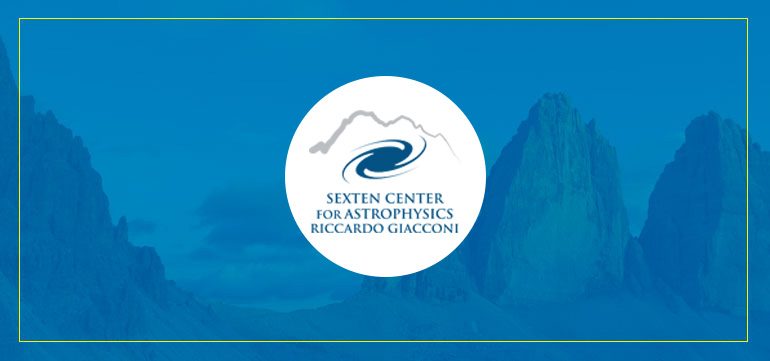
From Dark Energy to Bright Synergies
LOCATION: Sexten Primary School - Via Panorama 6, Sexten
DETAILS
In 2018 we will be marking the 20th anniversary of the first detection of the accelerated expansion of the Universe. Over these past 20 years, the question of what may be the fundamental source of such phenomenon — known as the Dark Energy problem — has become one of the major unaddressed problems of physics, shaping the research endeavours of an entire community and inspiring innovative developments both in theoretical speculation and in the frontier of observational efforts.
Space missions like the ESA Euclid satellite (http://sci.esa.int/euclid/) as well as ground-based enterprises like the Square-Kilometre Array (https:// www.skatelescope.org) have among their main goals the investigation of the Dark Energy problem and its rooting in possible new physics beyond the current standard model. Furthermore, in recent years several possible connections between the Dark Energy problem and other “dark” constituents of the Universe — such as the Dark Matter, be it made of heavy particle like WIMPS or ultra-light particles like Axions, or massive neutrinos — have been proposed, opening the window on a wealth of possible synergies that may be exploited to shed light on the cosmic dark sector as a whole.
This workshop has the aim of gathering some of the most active researchers in the field to foster discussions and collaborations on the several complementary aspects that characterise the current research on the Dark Energy and Dark Matter problems, ranging from theoretical modelling to the diverse range of effects on cosmic structure formation, investigated through challenging numerical and observational efforts, and to highlight possible “Bright Synergies” among them. The specific goals of the workshop are: i) update on the most recent developments on Dark Energy and Modified Gravity theories and their possible connections with other particle fields; ii) discuss strategies to constrain these models in view of upcoming large surveys such as Euclid, LSST, and SKA; iii) start new collaborative initiatives to fill the gap between theoretical modelling and observational selection. We will organise the workshop with morning sessions devoted to scientific talks and open discussions while afternoon sessions will be reserved to allow the development of collaborative ideas raised during the meeting
RELATED FILES
No files available yet.
FEE
To be defined
WORKSHOP CODE FOR PAYMENT
ORGANIZERS
SOC: Dr. Marco Baldi (Bologna University), Prof. Matthias Bartelmann (Heidelberg University), Prof. Stefano Borgani (Trieste University), Prof. Sabino Matarrese (Padova University), Dr. Alessandra Silvestri (Leiden University), Prof. Matteo Viel (SISSA), Possible key speakers to be invited: Luca Amendola (Heidelberg University), Eiichiro Komatsu (MPA Garching), Licia Verde (Barcelona University), Fabian Schmidt (MPA Garching), Kazuya Koyama (ICG Portsmouth), Lavinia Heisenberg (ETH Zurich), Céline Bohm (Durham University), David Marsh (DAMTP Cambridge), Cristiano Porciani (Bonn University), Steen Hannestad (Aarhus University), Heng-Yu Schive (National Taiwan University), Joop Schaye (Leiden Observatory), Ewald Puchwein (IoA Cambridge), Klaus Dolag (USM Munich), Thomas Kitching (UCL), Ariel Sanchez (MPE Garching), Alvise Raccanelli (Barcelona University), Tommaso Giannantonio (USM Munich), Silvia Galli (IAP Paris), Elena Sellentin (Geneva University), Esra Bulbul (CfA Harvard), Tesla Jeltema (University of California Santa Cruz), Enzo Branchini (University of Roma Tre)
